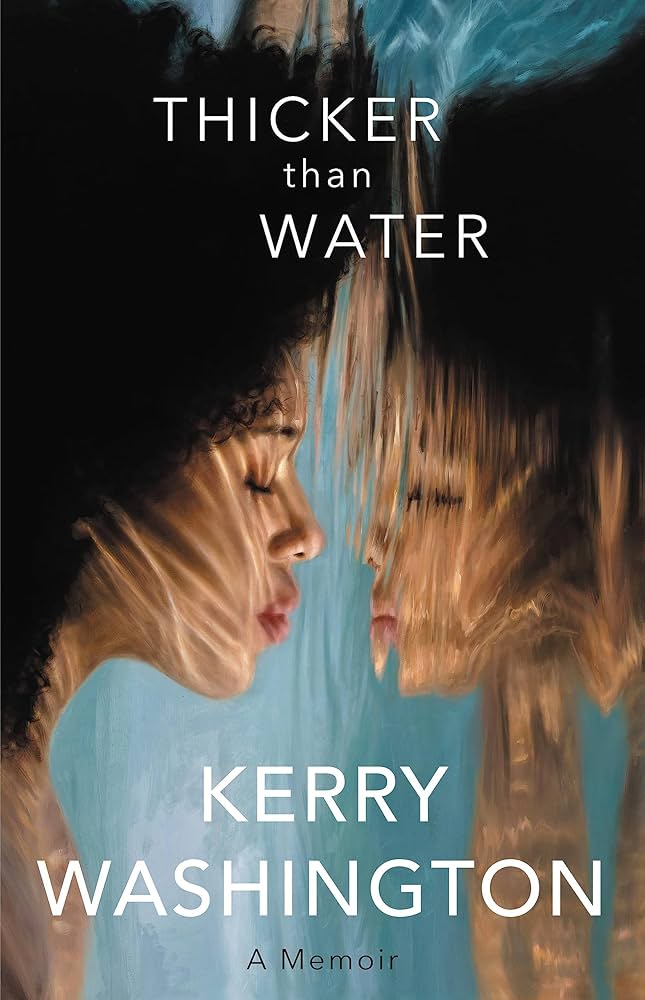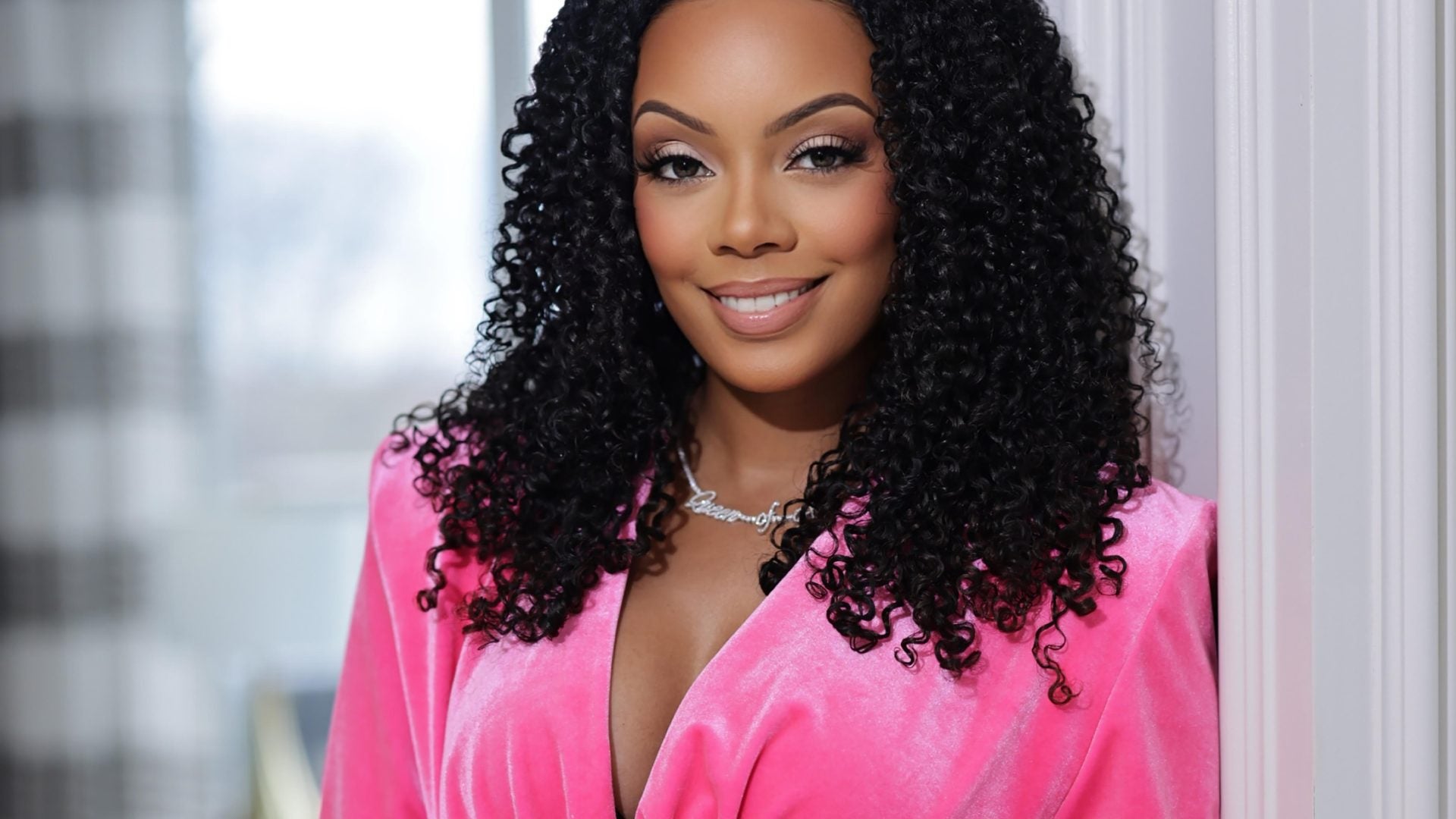
Most of us have gotten to know Kerry Washington through the roles she’s played during her decades-long career. From the high-powered crisis manager on Scandal to the wife of a Ugandan dictator in The Last King of Scotland and the dedicated, but enigmatic mother in Little Fires Everywhere, Washington has made an indelible mark in the entertainment industry. Though she is one of our generation’s most acclaimed actresses, Washington has always made an effort to keep her personal life private, which is why her upcoming memoir Thicker Than Water feels so special. The memoir begins with a revelation from Washington’s parents that her dad is not her biological father and in the following pages, the actress peels back the layers of her life, revealing a child who grew up in a home that was thick with secrets and who struggled with finding her place in her family and in the world. ESSENCE recently sat down with the actress to discuss the writing process for the memoir, what she was hesitant about including, and how she’s found healing in the truth.
ESSENCE: As an actress, you’ve always prioritized your privacy, but this book really pulls back the curtain on your life, your family, and your upbringing. Why was now the right time to tell this story?
Kerry Washington: If you had asked me 10 years ago if I would ever write a book like this, I probably would have said maybe when I’m 90, so I don’t think I could have ever anticipated this. But you know getting this news about myself and about my family really changed me in ways that I think I’m still just beginning to understand, and it inspired me to try to understand myself and my family a lot more. And I think that writing was my way through that process.

What was the writing process like?
When [Scandal] ended, I actually had a totally different book proposal idea, which was how to be the lead character in your own life because that was something that I felt like I had learned from the show. But then I got this information from my parents and every time I sat down to write that book, which was supposed to be a reflective, personal book, I felt like I just couldn’t write that book anymore, because that wasn’t my truth. I was really grappling with trying to understand myself in new ways so I called my publisher and said, ‘There’s no way I can write a book right now.’ If I was going to write a book, there’s only one book I would write and I’m definitely not writing that book, because it’s way too personal. But my publisher was very patient and encouraging and eventually, I felt like I started to try to write this book really for myself and my kids, and it became something that I’ve been willing to share.
Was there anything that you were hesitant about including?
There’s a lot in there that I thought, “Wow, am I really going to share this?” Whether it’s stuff about my parents or myself or my wedding, there’s a lot in there that is uncomfortable for me to be sharing, but it feels like it’s all part of the story.
You wrote that you struggled with your identity as a teen and that acting saved you by helping you feel seen and believed. Looking back, what would you tell your teen self about trying to find yourself in these fictional characters?
I think I would tell her that she’s as important as the characters. As an actor, I could answer all the questions about who the character is, how she walks and talks, and what she eats. I felt empowered as an actor in a way that I didn’t always feel empowered as a person. But I would tell my younger self it’s okay to be in a process of discovery. It’s okay to be evolving and to let yourself be as important as the characters that you play. Prioritize your relationship with yourself as much as you prioritize your relationship with the work of being other people.
As you struggled to find yourself, you also wrote about struggling with people pleasing, which I think is something many readers can relate to. Was there a defining moment when you stopped trying to please others?
I think it’s an ongoing process for me. In many ways, writing this book is an extension of that practice of trying to see what it feels like to say, I deserve to tell this story even though this book is not the book my mother would have written. It’s not the book my father would have written. It’s not their version of this story. I think even this book itself is part of my journey of letting go of people pleasing one day at a time.
You wrote from an early age that you felt disconnected from your parents because of what you perceived to be a house full of secrets. But now that you’re in this different stage knowing the truth, how has your relationship with them evolved?
The three of us are so much closer, and I think that’s part of the journey for me. But also part of the discovery for me is that it’s not always going to be this way with everybody. I’m sure that there are some truths that break families or break relationships, but for us, I would say we’ve been able to have so much more intimacy and connection and love.
Did writing this book give you a sense of closure?
In some ways, I think there’s closure. But I think in other ways, this is the beginning of a new way for my family to interact with each other. I’m still in the process of discovery, and there’s still lots of unknown adventures ahead of me.
What do you want readers to take from this book?
I’m sharing so many different parts of my story and people might identify or see themselves in different parts of it. One of the biggest responses so far that’s been really fascinating is that people tell me their family secrets, and it feels like an honor to hold space to receive people’s truth. But also, I hope that people are able to let go of some shame when they see that a lot of families have secrets and there can be a lot of healing in sharing our truth in safe spaces like with a therapist, a pastor, a best friend, or a journal. There can be great healing in sharing the things that keep us tethered to shame.



